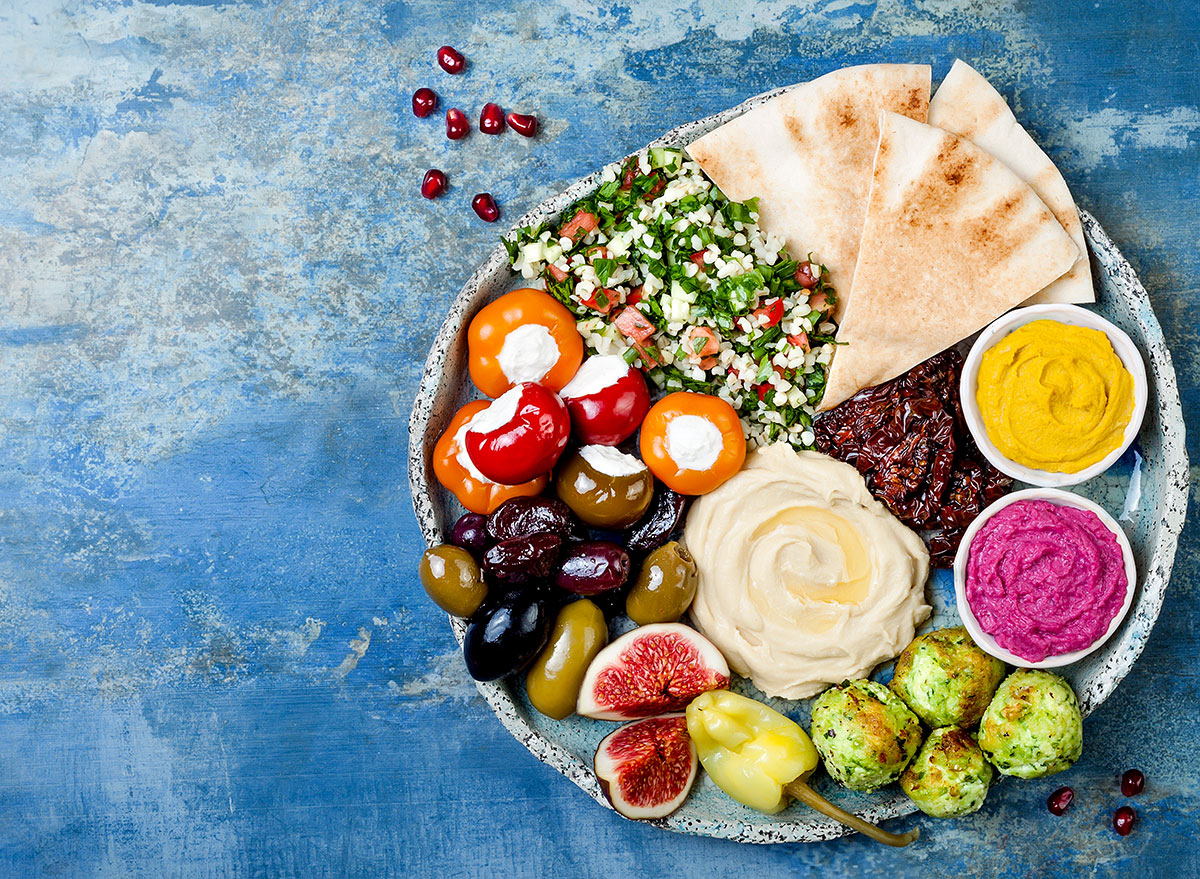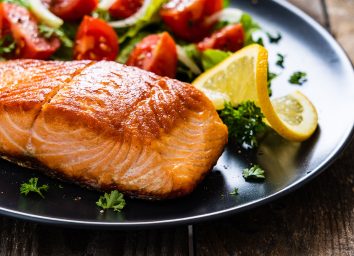New Study Claims The MIND Diet Can Help Prevent This Common Aging Problem
By now, if you're interested in living a long, healthy life, you probably have some sense of how different foods affect your body. You may have even noticed, for instance, which breakfast foods leave you feeling groggy all day versus the ones that give you the energy boost you need in the morning.
Scientists continue to explore how what we eat affects not just our bodies but our minds, too. This is why the MIND diet is of particular interest—it combines elements of the Mediterranean diet with those of the DASH diet to create a food plan designed to boost your cognitive health. New research finds that this diet can help older adults fight dementia, even when they have physical markers linked to Alzheimer's disease.
RELATED: The Best Foods for Your Brain After 50, Say Dietitians
The study, published in the Journal of Alzheimer's Disease, looked at data from 569 deceased people. Researchers at Rush University Medical Center compared their performance on cognitive tests taken late in their lives to information about their diet as well as to their post-death autopsy reports. The researchers found that people who kept to the MIND diet performed better on the cognitive tests, even when their brains showed the physical signs—plaques and tangles—that are typically characteristic of Alzheimer's disease.
This suggests that the MIND diet could play a role in helping older adults keep their minds sharp, even as their bodies work against them.
"This study suggests our food choices can build resilience against cognitive decline as we age, even when the physical signs of Alzheimer's disease are present in the brain," Maggie Moon, MS, RD, best-selling author of The MIND Diet, told Eat This, Not That! in an interview. "That's especially important because drugs don't work, at least not right now. Even when they clear some of the plaques from the brain, they haven't been able to reduce or slow cognitive decline."

The name MIND diet is not just a statement of the diet's intended benefits—it's also an acronym. It stands for Mediterranean-DASH Intervention for Neurodegenerative Delay. Researchers propose that the closer people stick to this diet, the lower their risk of Alzheimer's disease will be. Recommended foods on this diet include "leafy greens, a variety of vegetables, whole grains, olive oil, nuts, beans, berries, poultry, fish, and wine in moderation," says Moon.
"There are also a set of recommendations for foods to limit in your diet," says Julie Andrews, MS, RDN, CD, FAND, author of The Brain Health Cookbook: MIND Diet Recipes to Prevent Disease and Enhance Cognitive Power. "Those foods include fried foods, processed and red meat, whole-fat dairy, and sweets and pastries. These foods can still be included in your diet—say, if cheese is your favorite food, but it's recommended to limit them and focus more on the MIND diet superfoods."
The researchers behind this study also point to previous studies that suggest the foods in the MIND diet are rich in antioxidants, have anti-inflammatory properties, and are associated with protecting people's cognitive health.
For more on how to make food choices that will keep you sharp, be sure to check out these 10 Best Foods to Boost Brainpower. Then, don't forget to sign up for our newsletter!









